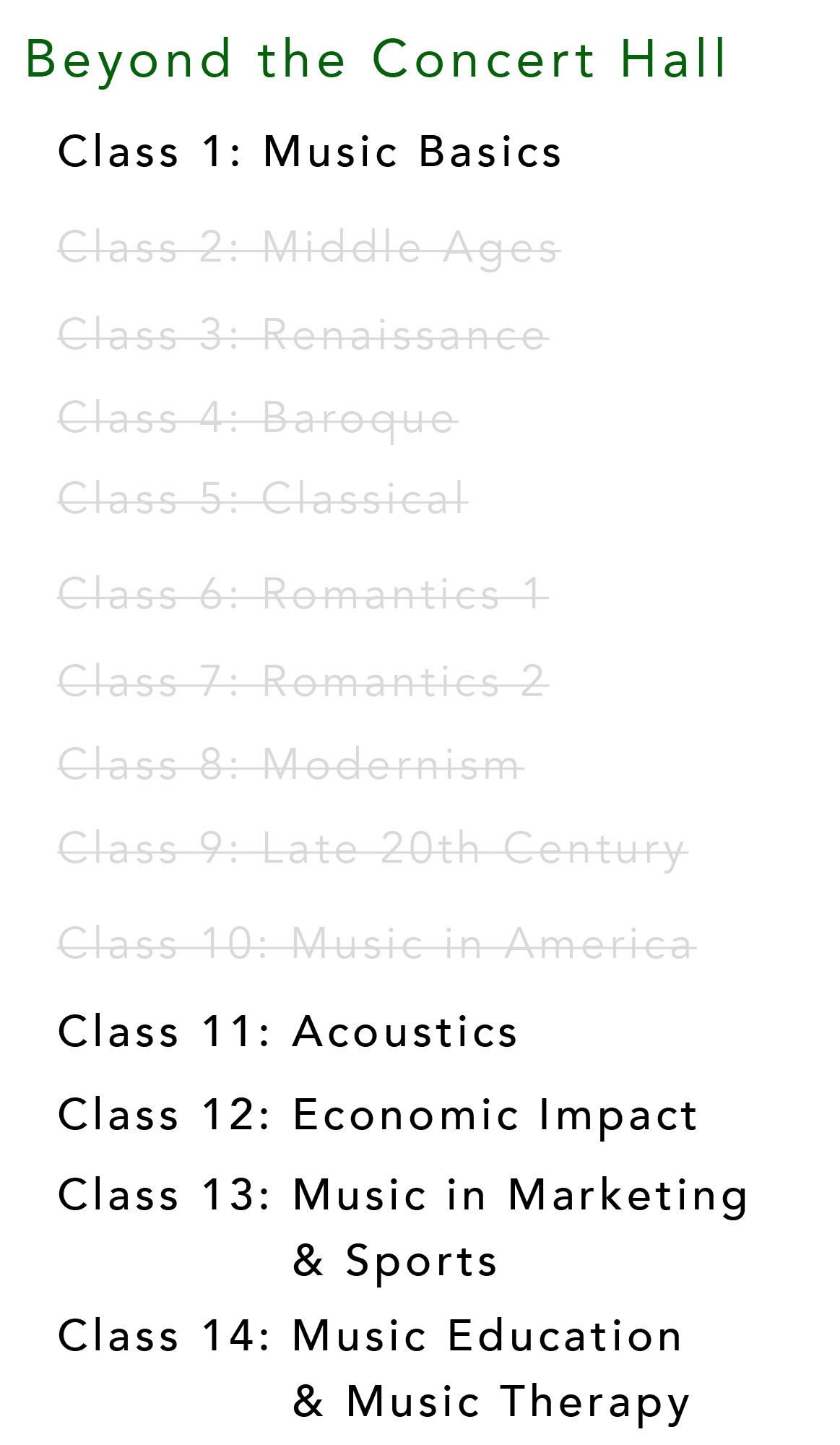Next session begins February 15th. ENROLL NOW

Beyond the Concert Hall
5 Classes
Instruments? We don’t need no stinkin’ instruments!! This series focuses exclusively on the behind-the-scene logistical and economic aspects of the arts; in particular, their impact on cultural and economic life in the 21st century.
Designed for – but not exclusive to – participants currently studying music or arts administration.
Beyond the Concert Hall
Music Basics
All the basic music theory you need so you can follow along with our lectures when we look through written music. Notes, rests, rhythms, clefs, and meters – it’s all there. Don’t worry, it’s much easier than it sounds.
Acoustics
The science of sound. We look at how music moves – or doesn’t – around us. Like how front row seats may be the most expensive in the house, but that doesn’t always mean they’re the best. In fact, they’re usually the worst (hint: It’s the cheapies you want to snag!).
Economic Impact
The fine and performing arts contribute almost $1 trillion to the U.S. economy ANNUALLY!! That’s more than agriculture, more than construction, way more than sports could ever dream of – and that number grows every year [there isn’t a pandemic]. We look at how the government’s investment in the arts sees a return of over 5,000% annually (yes, three zeroes).
Music in Marketing & Music and Sports
Part A: Music in Marketing
Everywhere you look and in every facet of our society, you’ll find art and music. Since the invention of the radio, music has been the most vital aspect of marketing and advertising. Nowadays, no industry can survive without the arts!
Part B: Music and Sports
We compare the economic and logistical impacts of the arts to that of the sports industry – arguably the arts’ biggest competition for entertainment dollars and municipal support. We’ll answer the question of “Why is it more important to build a new theatre in town instead of a new football stadium?”.
Music Education, Participation, and Therapy
Part A: Education and Participation
Unfortunately, simply listening to classical music does not increase a child’s intelligence (i.e. “the Mozart Effect” = old wives’ tale). However, countless studies have shown that when a child participates in music, they have a better understanding of the world around them and perform much better in school and on cognitive tests. Now what parent wouldn’t want to learn more about that??
Part B: Music Therapy
We all have those particular songs we go to when we’re feeling happy, sad, angry, unmotivated, excited – or when we’re not feeling those ways but want to be. In addition to being the second most powerful memory trigger we have (smells are #1), music has proven to have amazing “healing” powers when used to address the physical, emotional, cognitive, and social needs of individuals.
